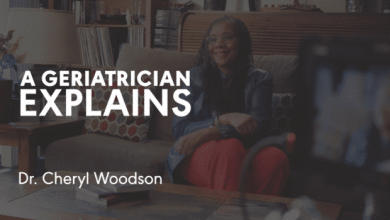Empower Your Plan: Navigating Maternal Health & Contraception


Did you know that in the United States, teens of color experience roughly twice the rate of pregnancies compared to white teens? Additionally, an estimated 19 million women in the U.S. live in contraceptive deserts, where access to a full range of contraceptive methods is limited. These disparities not only affect individual women but also have ripple effects in communities across the country. Shockingly, the teen birth rate in Texas recently increased for the first time in 15 years, highlighting the urgent need for comprehensive solutions to address these challenges.
Understanding Unplanned Pregnancy
Unplanned pregnancy is a complex issue, influenced by various factors in your life and community. Effective solutions must be diverse, targeting areas of high unmet need and addressing systemic inequities. Organon, a global healthcare company specializing in women’s health, is launching new initiatives across the country as part of its “Her Plan is Her Power” ESG initiative. initiative to reduce unplanned pregnancy rates and support women’s health issues in local communities. This initiative emphasizes the importance of comprehensive and community-focused approaches to addressing the complex challenges surrounding unplanned pregnancy.
Empowering Women’s Health with Dr. Charlotte Owens
Dr. Charlotte Owens, Head of Medical Affairs and Outcomes Research, is leading the charge in this initiative, focusing on raising awareness about reproductive health issues among college students, particularly at Historically Black Colleges and Universities (HBCUs), She is dedicated to promoting access to contraception and reproductive healthcare services on HBCU campuses, believing that empowering young women with information and resources is essential for their overall health and well-being.
BlackDoctor.org sat down with Dr. Owens, a renowned obstetrician-gynecologist, to discuss the challenges and opportunities in maternal health, contraception, and reproductive health, particularly in underserved communities, what can be done to improve outcomes in these critical areas and what women can do to take charge of their health.
RELATED: 7 Things Pregnant Black Women Can Do to Be Heard by Doctors
What You Need to Know About Maternal Health
1. Your Risk Matters
As a Black woman, Dr. Owens emphasizes that understanding your elevated risk of maternal mortality and morbidity is crucial for advocating for the care you deserve. She stresses, “Know your family’s medical history, as it can help you and your healthcare provider assess your risk factors and develop a personalized care plan.”
Education is also vital. Dr. Owens advises, “Educate yourself about pregnancy, childbirth, and postpartum care to make informed decisions.” She encourages open communication with healthcare providers, stating, “Don’t hesitate to ask questions about your care, treatment options, and any concerns you may have.” Seeking a second opinion if you’re unsure about a diagnosis or treatment plan is perfectly acceptable, she adds, emphasizing, “Know your rights and advocate for respectful and equitable care during pregnancy and childbirth.”
In building a support network, Dr. Owens underscores the importance of having family, friends, and healthcare providers who can offer guidance and assistance during pregnancy and motherhood. “Having people who can support you emotionally and physically can make a big difference in your pregnancy journey,” she adds.
Advocating for culturally competent care is also paramount, according to Dr. Owens. She advises, “Seek out healthcare providers who are culturally competent and understand the unique challenges faced by Black women in maternal health.”
2. Prenatal Care is Key
To maintain a healthy pregnancy, it’s crucial to start prenatal care early.
“Begin prenatal care as soon as you think you might be pregnant, or as soon as you confirm your pregnancy. Early care can help




